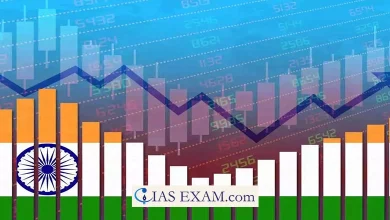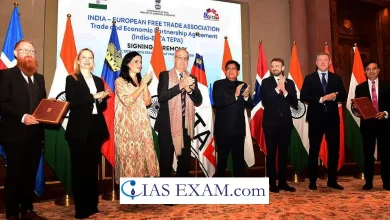Need for Global Pandemic Treaty
[GS Paper 2 – Effects of Politic and Policies of World in India’s Interest]
Context – After the COVID-19 pandemic, the world must contemplate over the formation of a global treaty involving all the stakeholders to deal and avert any such pandemic in the future. In order to develop a coherence and avoid fragmentation of response in the face of a pandemic in future, the need of the hour is a global pandemic treaty under the aegis of World Health Organization.
Need of a Global Pandemic Treaty
- The COVID-19 pandemic will go down in the annals of history as one of the most severe pandemics experienced by the world in the past 100 years. According to numerous estimates, the death toll was recorded beyond 18 Million which is just behind the loss of life incurred during the Second World War.
- The pandemic resulted in nearly 120 million people worldwide pushed back to poverty while in the face of a large-scale recession, no single nation has been able to deal with the turn of events single-handedly, be it the mighty United States or India.
- All these events have given us a clear perspective of how nobody is safe until everybody is safe.
Inequality in Healthcare Systems
- Distribution Inequality: The healthcare systems worldwide have been stretched beyond their limits during the difficult days of the pandemic. All around the world, gross health inequality was witnessed on all fronts including diagnostics, vaccines, therapeutics etc.
- Irrevocable Consequences: While high-income economies are still recovering from the aftereffects, the socioeconomic consequences of the novel coronavirus pandemic are irreversible in low and low middle-income countries.
- Monopoly by Pharma Companies: Big Pharma Companies such as PFizer, BioNTech, Moderna etc generated 9 new billionaires since 2020 and made over $ 1000 Million in profits. This even after, the vaccines could barely reach numerous low-income countries in time.
- Distorted Distribution: As of March 2022, only 3% of people in low-income countries had been vaccinated with at least one dose, compared to 60.18% in high-income countries. The global target to vaccinate 70% of the worldwide population by mid-2022 could not be achieved because the poorer countries could not afford them in the first place.
India’s Role in the Treaty
- Dynamic response – The Indian response to COVID-19 pandemic by leveraging its own potential ultimately led to some sort of global equity and was praised by legislators and pundits worldwide.
- Vaccine diplomacy: As of today, India produces nearly 60% of all the vaccines worldwide. It is reported to account for 70-80% of the UN’s flagship annual vaccine procurement with a commitment against health inequality.
- Leading by Example: India was unfettered in its resolve to continue the shipment of vaccines and other diagnostics even when it was experiencing a vaccine shortage for domestic use. In perspective, the vaccine mission was only stopped during the peak times of the second wave of the COVID-1p pandemic which was very severe to say the least in India.
- A classic example of global cooperation: By the end of 2021, India had shipped almost 600 LAkh doses of vaccines to different parts of the world which is an achievement in itself and truly a classic example of global cooperation. Among these, 81.25 lakh doses were gifts, 339.67 lakh doses were commercially distributed and 173.43 lakh doses were delivered via the Covax programme under the aegis of Gavi, the Vaccine Alliance.
Perceived Advantages with the Treaty
- Data sharing: The Global Treaty can cover all the crucial aspects of data sharing including genome sequencing and identification of emerging viruses.
- Rapid response mechanism: It will aim to make the nations commit to implement an early warning system as well as a sufficiently funded and ready rapid response mechanism.
- Health investments: Further, it should mobilize nation states to agree on a set of common metrics that are related to health investments and a return on those investments. All the investments under this treaty should look to effectively reduce the public-private sector gap.
Way Forward
The scope of a global pandemic treaty is beyond any socio-economic inequalities across borders. It will duly enhance the global pandemic preparedness in lieu of any future health emergencies and India must look to take the leading role in this Global Treaty.





.png)



